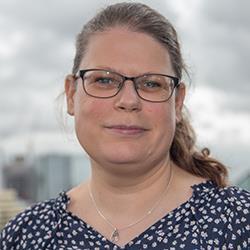In association with

An on demand version of this webinar is available.
Even before covid, staff absence levels in the NHS were higher than those in the rest of the economy. With a pandemic of a highly contagious virus, and the service strain of dealing both with infected patients and pre-existing service pressures, it is little wonder that NHS staff absence has grown further in recent years.
In June 2022, the overall sickness absence rate for the NHS in England was 5.2% – higher than May 2022 (4.9%) and June 2021 (4.6%). The most reported reason for absence: anxiety, stress, depression or other mental illness. Most likely to be away were those providing support to ambulance staff.
Not all staff absence is inevitable. But reducing avoidable absence requires a much better understanding of the range of root causes, and a sensitive and appropriate response to them.
How, then, might NHS organisations develop such an understanding? What role might collection and analysis of workforce data provide? What sort of support do managers need to ensure is in place to reduce the risk of prolonged absence and help staff through ill health? How might leaders make targeted interventions for a positive and demonstrable change – for the health of their people and their organisation?
This HSJ webinar, run in association with GoodShape, brought together a small panel to consider the answers to these important questions.
To access the recording, visit and click play.
If you had previously registered as a viewer for the event, you will be able to view the recording immediately.
If you had not previously registered, you will be prompted to complete a form and then be sent information on how to access the recording.
Speakers

Jonathan Best, chief customer officer, GoodShape
Jonathan has served on the leadership teams of a number of health tech software companies, and previously led on health sciences at Oracle. His 25-year career spans strategy, software, operations, and innovation at organisations ranging from start-ups to global leaders. He is passionate about maximising the impact of better employee wellbeing on business and economic performance.

Claire Read, chair, HSJ
Claire Read is a professional writer and editor who has specialised in healthcare throughout her 20-year career. She has been a regular contributor to HSJ since 2012 and has a particular interest in healthcare digitisation and technology.

Sarah Morley, deputy president, Healthcare People Management Association (HPMA) and executive director of organisational development and workforce, Velindre University Trust
Sarah took up post as executive director of organisational development and workforce in Velindre in July 2014. The trust provides specialist cancer services in Wales. She joined the NHS in 2000 following a successful career as a self-employed IT training consultant. During 10 years at Gwent Healthcare Trust, she had the opportunity in work in a number of roles across education, development and workforce before joining Cardiff and Vale University Health Board in 2010 as assistant director of organisational development before taking up her current role. Sarah was chair of Healthcare People Management Association (HPMA) Wales from September 2016 for two years and currently holds one of the UK HPMA deputy president positions. She will become join president from April 2023.

Masood Aga, clinical director for occupational medicine and specialty lead for health and wellbeing, Sandwell and West Birmingham Trust.
Masood Aga is clinical director for occupational medicine and specialty lead for health and wellbeing, Sandwell and West Birmingham Trust. He is also a visiting consultant at The Royal Wolverhampton Trust and The Dudley Group Foundation Trust, the two other large acute trusts in the Black Country region of the West Midlands.
Masood serves as deputy chair of the NHS Health at Work Network, and represents the NHS on the executive committee of The Association of Local Authority Medical Advisors (ALAMA).
In 2017, he received the Faculty of Occupational Medicine’s Peter Taylor Award for his study on workplace factors and mental health-related sickness absence in the English NHS trusts. In 2022, he won The Society of Occupational Medicine’s outstanding occupational health practitioner award.






















